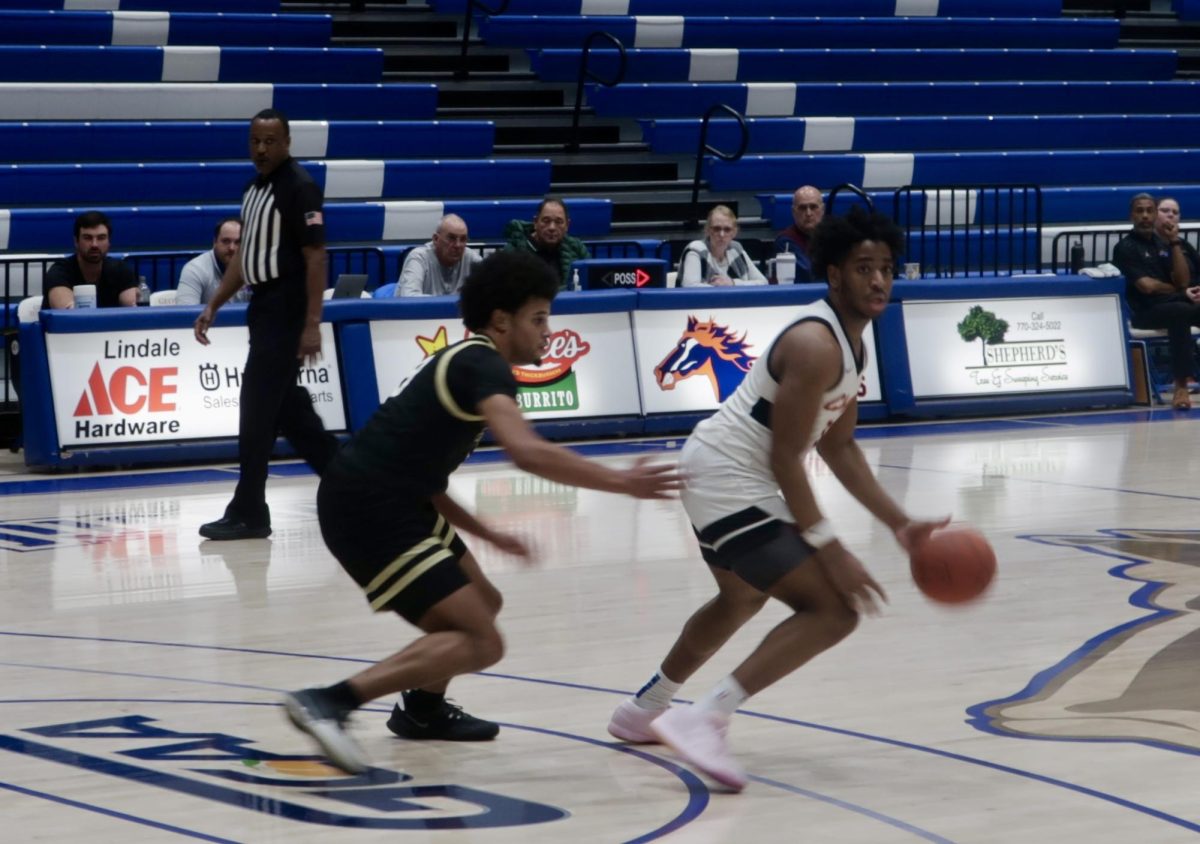GHC screens ‘Miss Representation’ for Women’s History Month
March 11, 2019
During Women’s History Month, GHC will be providing students with opportunities to learn more about Women’s issues through events across all GHC campuses. Many of these events will be documentaries that will give students the perspective and story of the female experience.
One of these documentaries will be “Miss Representation,” a film about how media’s portrayals of women and girls make it difficult for them to feel powerful and achieve leadership positions.
“Miss Representation” was directed by Jennifer Siebel Newsom. It was her first film that appeared at the Sundance Film Festival in 2011. The film’s purpose was to expose the ways in which mainstream media and culture contribute to the underrepresentation of women in positions of power and influence.
According to Travice Obas, professor of communication, “In a society where media is the most persuasive force shaping cultural norms, the collective message we receive is that a woman’s value and power lie in her youth, beauty and sexuality and not in her capacity as a leader.”
This is not the first time that “Miss Representation” has been shown at GHC. Obas began showing “Miss Representation” in her mass media course back in 2012. She later provided students the opportunity to organize and conduct the first campus wide showing of the event in 2013. “Miss Representation” will be screened at the Cartersville campus on March 18 at 12:30 p.m. with free Chick-Fil-A for the first 100 attendees. Question and answer sessions will be conducted between segments of the film.
There are also extra credit opportunities for students who attend the events of Women’s History Month for classes in English, communication, history and psychology. Students will also have the opportunity to add a stamp to their Stampede Card for attending any of the events of Women’s History Month.
There will be other documentaries that will be shown throughout Women’s History Month on all GHC campuses.
Along with “Miss Representation” on the Cartersville campus, there will be a screening of the documentary “Girl Rising,” a film that follows the journey of women utilizing the power of education to overcome obstacles, and the documentary “Iron Jawed Angels,” a film that depicts the story of women in pursuit of achieving voting rights.
On the Floyd campus there will be a screening of two documentaries “Embrace: The Body Image Movement” and “No Job for a Woman.” These documentaries depict female reporters during World War II.
The documentary “Teach Girls Bravery, Not Perfection” will be screened at the Douglasville, Paulding and Marietta campuses. Paulding and Marietta will be screening “Miss Representation” as well.
Obas said, “In order to shift and ultimately change the culture in relation to gender stereotypes, it is imperative to provide a discussion platform to educate and challenge how women are perceived in media and society.”
Obas also said that part of the college experience is to engage in meaningful conversation, dialogue and ultimately act on such revelations. She believes that people simply must communicate more with one another if people hope to see change in society.
When it comes to the significance of Women’s History Month, Obas said, “The significance of Women’s History month is truly powerful. To me it represents the opportunity to share stories of women, by women, in the hope that in the future, women of all ages will be provided more opportunities.”



































































